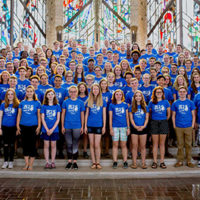At mRelief, the mission is “to restore dignity by transforming access to social services.” This Christopher Family Foundation grantee centers their work on the dignity of the recipient. They focus on streamlining the sign-up process for SNAP benefits (the federal food assistance program) by creating tech solutions that simplify application and renewal processes.
As part of their work they are actively investigating what dignity means the people they serve. Recently, the staff surveyed 1,000 of their users via text, with some follow-up interviews as well, to understand how SNAP recipients feel their dignity is considered when navigating public benefits.
One of the questions they asked is about what happens when a card is lost or damaged. What would it feel like, they asked, to lose your electronic benefits card, after you had finally qualified for SNAP benefits (the federal food assistance program)?
One of their interview respondents, Thomas, was a returning citizen, working his way back to self-sufficiency after a period of imprisonment. He was living in a shelter, and had left his EBT card in the pocket of a pair of pants. Because of COVID, the shelter was enforcing a strict laundering policy and washed those pants without emptying the pockets first, destroying his card. During the week or so it took for his replacement card to arrive, he managed to eat by visiting food pantries.
But for Thomas, that card, and the ability to go shopping at the grocery store with it, was a stepping stone toward the self-sufficiency his family had always taught him. It hurt his dignity that he couldn’t access his benefits for that week. It made him feel less than whole, and as if he’d lost some of the ground he’d gained back in his sense of self-worth since leaving prison.
The Farm Bill, which authorizes SNAP, allows states to develop electronic substitutions that could be pushed to a smart phone (Thomas has one), so he could have had the benefits pushed to his phone while he waited for a new card. But this would require each state to develop a system to do that, and they haven’t. Much of what mRelief does through their simple, smart-phone enabled technologies, is to create a more flexible and humane front door to the states’ more brittle applications systems. They model what a good, modern alternative could do for people who need to access food.
Our systems are designed toward particular ends. We provide food benefits so people don’t go hungry, but we administer the benefits with fraud-prevention at the center. mRelief asks what this system would look like if it had human dignity, Thomas’s dignity, at its center instead.
—Contributed by Clare Butterfield, Executive Director


 About Us
About Us Programs
Programs